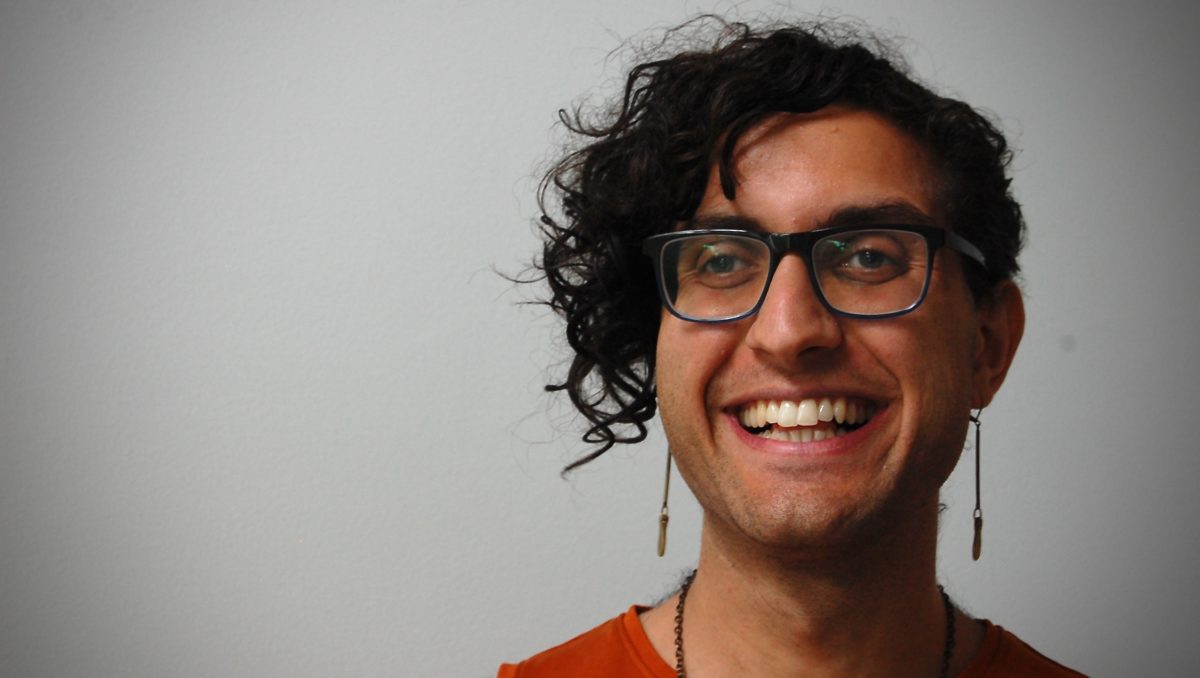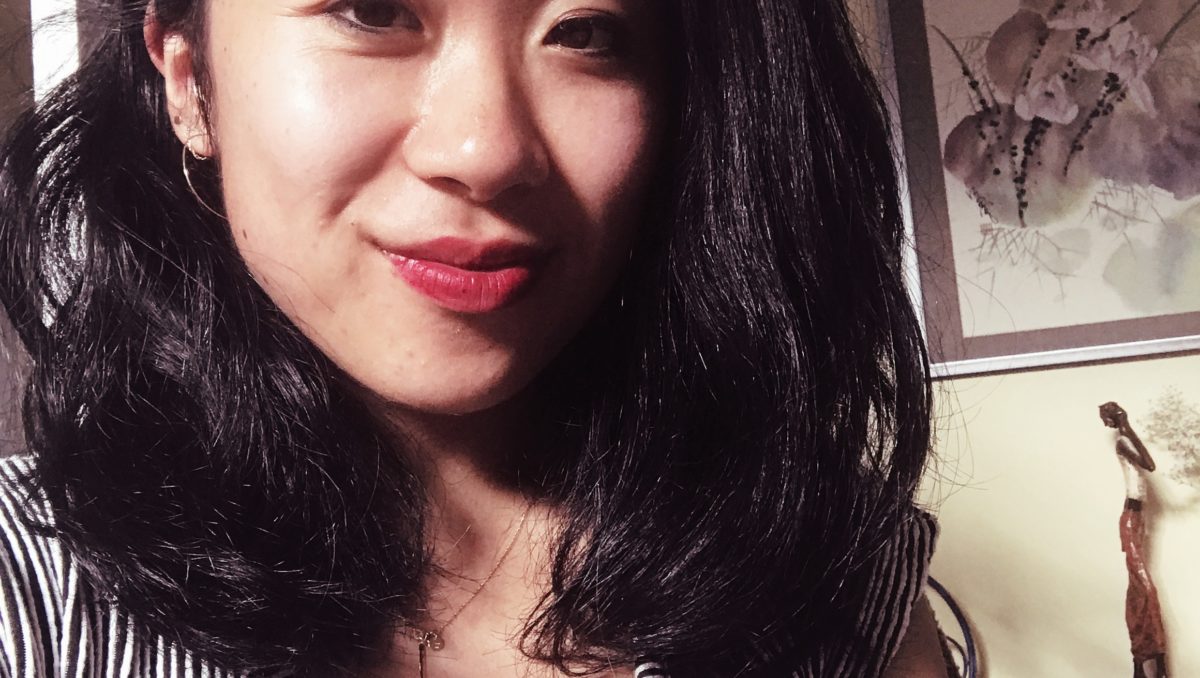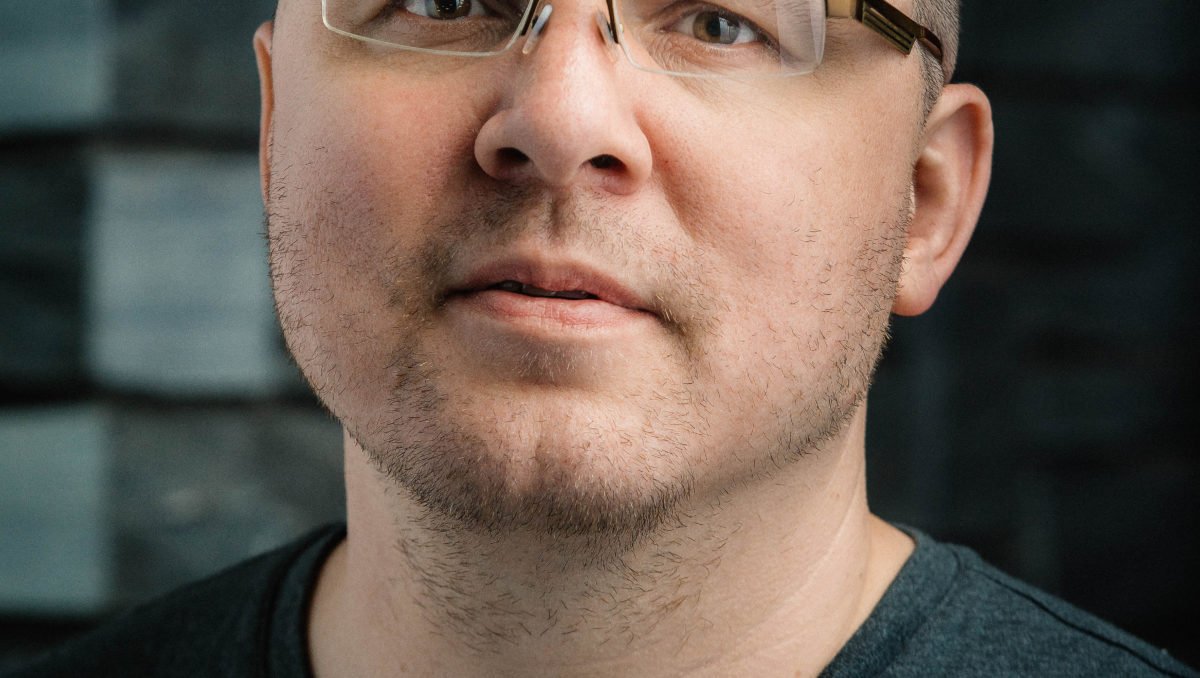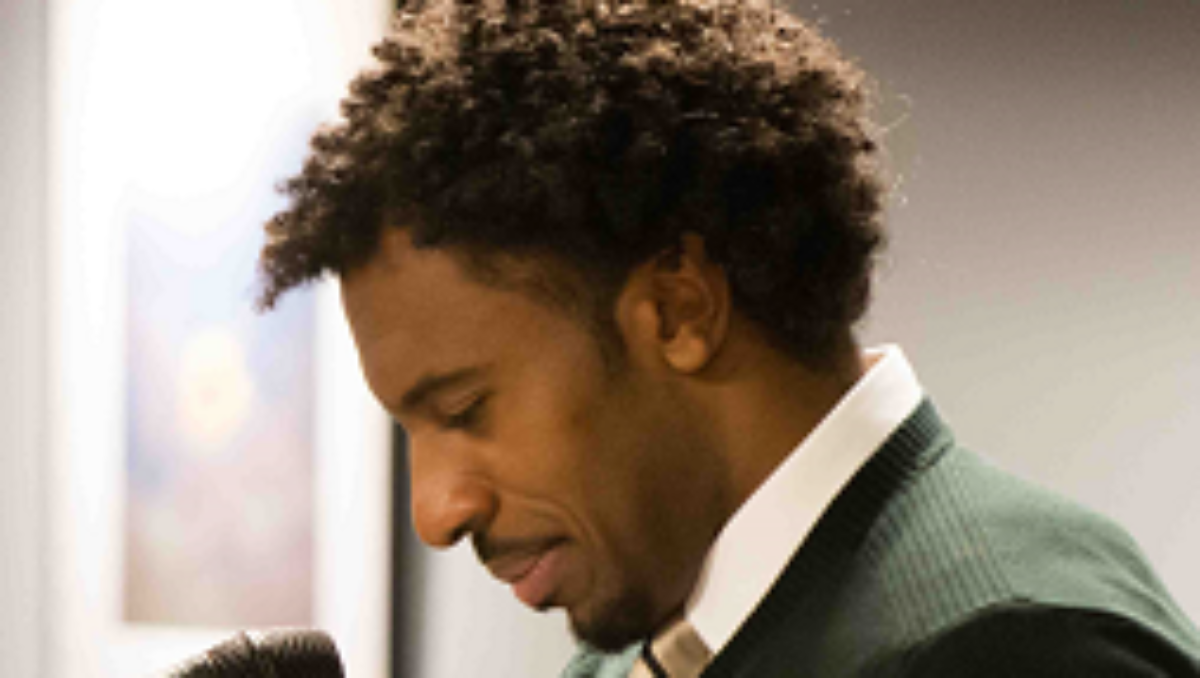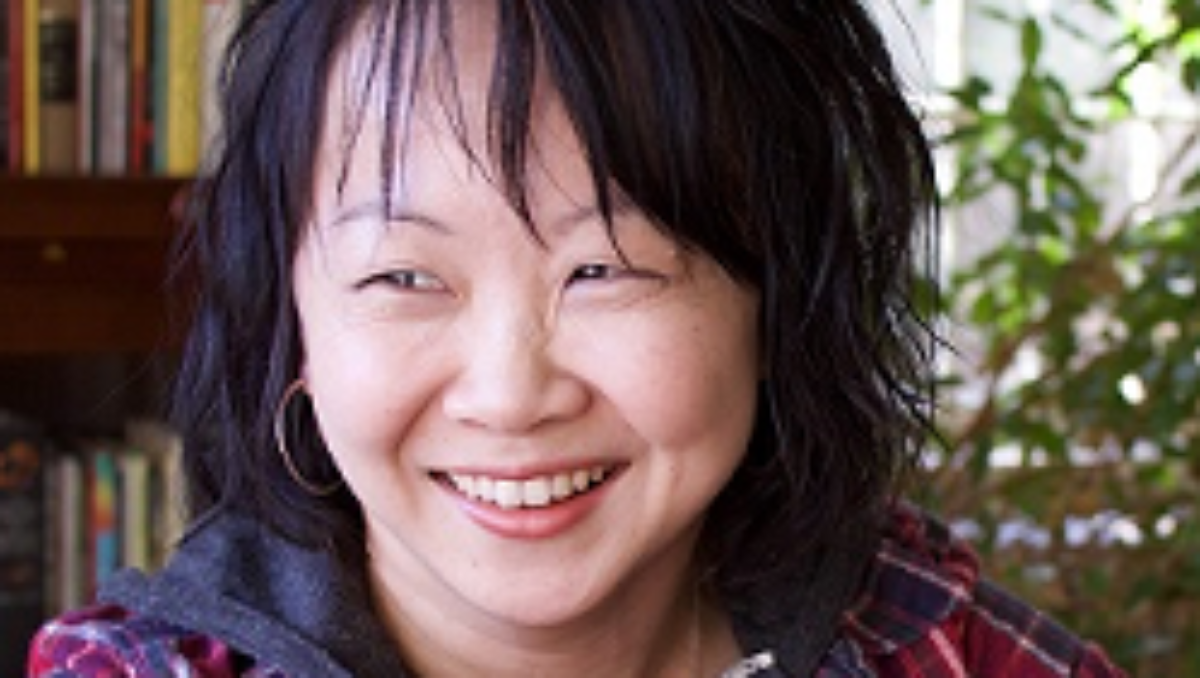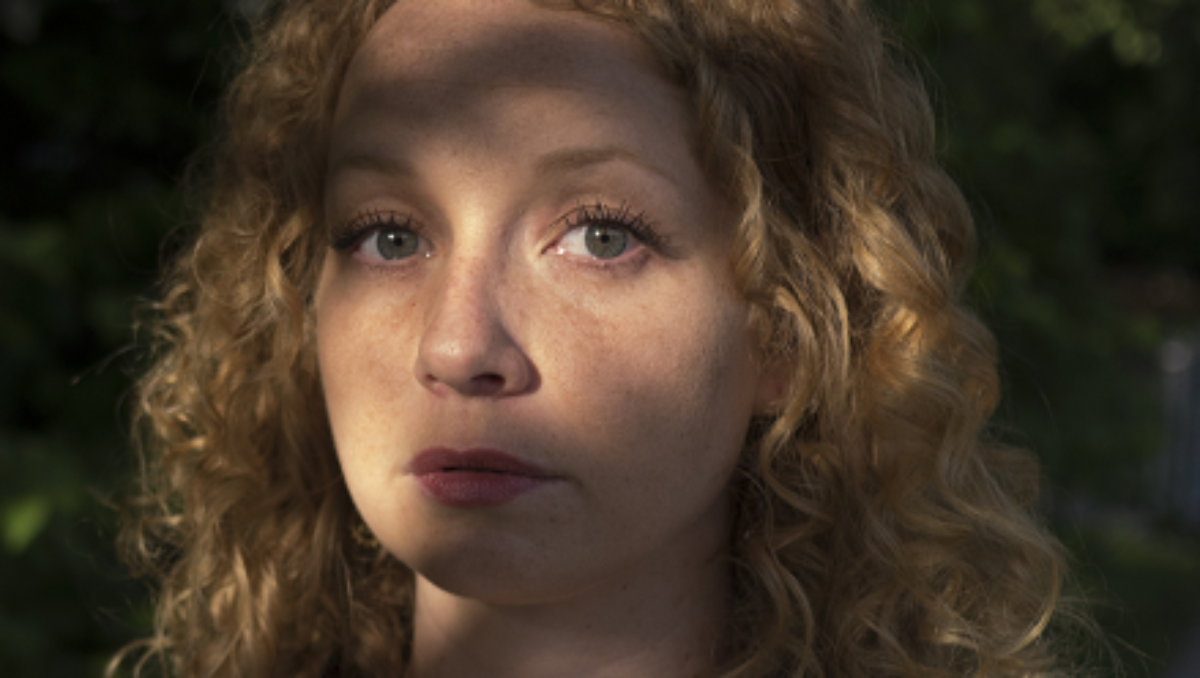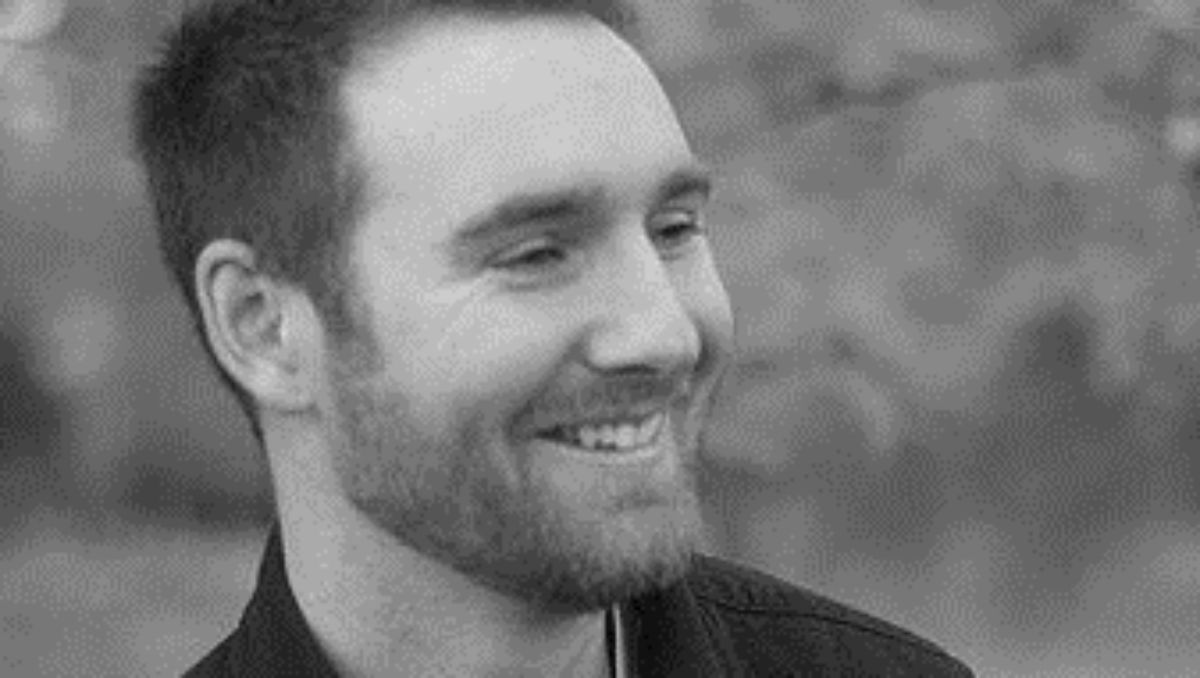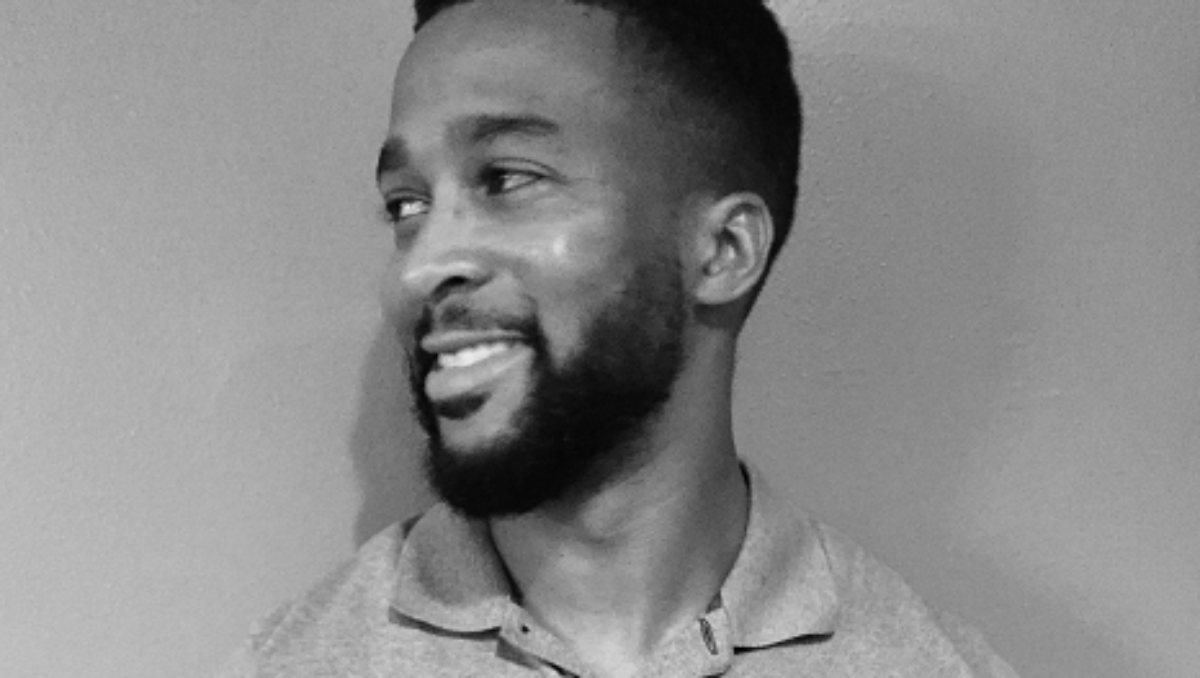TWO POEMS by Katie Condon
I’m a Kick-Ass Woman
Ask anybody. This ass has never been kicked
to the curb. I do the kicking. I’m a nasty-ass woman
drinking chamomile tea at dusk. I know what I’ve got
& it’s a throne for an ass. Grab it. Kiss it. Pop
the pimple on that ass. See what happens when you
disagree with my ass. I’ve got a bad-ass ass. A kick-ass ass.
A good-pair-of-jeans-is-hard-to-find-type ass. Cue Flannery’s
ass, as broad & innocent as a cabbage. I’m getting literary
on your ass. Listen: you can’t have passion
without ass. Or Parnassus. Make way for my poetic ass,
as essential & enduring as your thesaurus
but sexier. I’d tattoo the Cantos on my ass
if it would make it less boring. This Is Just to Say: A Carafe Is a Blind
Ass, or: I’m no Modernist. I’m the future
of The Poetics of Kick-Ass—the voice of a nation
from the mouth of a woman with the keys
to the van that fits all of your sweet asses. Climb in.
We’re bound for the coast. Bet your ass
we’ll be there before dawn. Sit back & watch
my Walt-Whitman-dashboard-hula-girl shake his ass
all the way across the American desert
we’ll make an oasis of by the time we’re through.
Poem From the Mouth of God
There is a reason
I have yet to let anyone
see my face. I am a lonely man
& socially inept. I send angels
into women’s rooms
because I never mastered the art
of non-offensive pick up lines
& even with a wingman
only one woman’s ever said yes.
She is tired of me.
Who can blame her
when I spend my days
at every window in the house
shuttering & unshuttering myself
from the view I created
& grew afraid of. My son
doesn’t visit anymore
& you’re not surprised.
Me neither. After centuries,
the first miracle I performed
was this morning
when I raised myself
out of bed & lifted a razor
to my horrible face.
What advice do I have left
except that you should make things
& keep them closer to you than ethers away.
Do not be like me.
This light is the only good
I’ve offered you,
but even light, too often, dies
in a furious burst.
- Published in Issue 16, Poetry, Uncategorized
THREE POEMS by Dilruba Ahmed
THE CHILDREN
How each one is taken
with care from car
to school doorstep, each one
hand-in-hand with an adult.
How the mothers
and fathers kiss
their foreheads, first
pushing aside their bangs
or smoothing
a stray wisp. One
parent straightens
her daughter’s velvet
headband; another wipes
dried oatmeal
from his son’s pink lips.
How carefully
each child is guided
around the bumpers
of cars. How some turn
to wave goodbye
one last time while others,
drawn to friends
by an invisible cord,
move together, first left
then right, with
the synchronicity
of fish. How even the child
with tears in his lashes
who cowers near a teacher
knows that in a matter of hours,
a loved one will return
to him, to return him
to the facts of home:
butterfly net
for trapping monarchs.
Foil blanket
from a space museum.
Four-leaf clover
charms on a chain.
ANOTHER FORM OF SKIN
Hiding us all the times we prefer to stay hidden.
Piled by the door
rumpled, forgotten.
Brought forward
in offering: burnt mittens,
torn shoes, bloodied handkerchief.
I have hung on a clothesline
shirts so white that I
felt surrounded by clouds
or by the impossible words
of God. Sometimes the wind
blows through me
as though I do not exist,
as though all form
could go formless without notice.
Think, for example, of the way
no one stands at the door
offering a cabled sweater, saying
here you might need this
it’s cold out today no one
except me, for example.
And though
there is no one, now,
inside the sweater
here I am securing each button
all the way to the top,
delicately lifting
imagined lint from a sleeve.
IN THE HOURS JUST AFTER, IN THE HOURS BETWEEN
Caught between one world
and the next, between the buzzing actual
of air breathed, streets crossed,
food chosen, prepared,
consumed. Of sleep slept
but broken
again and again into waking—
caught between the easy language
of regret and viscous words of loss,
words that, like timid creatures,
have tunneled deep into caves
for the long winter, and may never
emerge again, such is the lure
of the darkness
and the mind & the mouth hollowed out.
Caught between laughing
about what he would’ve said
about attending to his own death
Easy now, easy, take it easy now now now
and absorbing the infinite chill
of seeing he could
no longer say it—
we speak of him, still, in the present
tense. Caught between calling, first,
the one who’d prepare his body
for the grave or the one who’d
tend to his soul as he’d wished.
Morgue or mosque, we ask
him, mosque or morgue we ask
ourselves. Again and again,
the sound of no voice,
just the specter of one nurse
and then another
shuffling down the hall in scrubs,
doctors in angel-white gowns
and shoes, their hairnets
like deflated haloes
clinging to their heads.
- Published in Issue 16, Poetry, Uncategorized
G-D POEM by Sass Brown
Oh the g-d in you. Thank you for what g-d you did today
g-d as gold g-d as gone You believe there’s g-d out there somewhere
among trash heaps that smell less these days because the plastics in them
no g-d old organics
you know it’s g-d because it smells as it rots most g-d things don’t last long
What kind of g-d don’t you believe in
My word is g-d He’s a g-d egg No news is g-d news
You don’t want to hear how g-d you are It’s not that anyone actually knows
but you look g-d, Girl, really g-d
Take a look in the mirror
you see nothing at all
That’s gotta be g-d
or at least the image of g-dliness
At least you’re in g-d hands
You don’t want to be g-d
because if you’re g-d that means g-d can have cracked nails
with sky blue polish in the cuticles
g-d can have mistweezed eyebrows
g-d might be wearing dirty underwear never as g-d as you hoped for
under a sundress that’s a bit too short no g-d at all
A g-d way to go A chapped kiss g-dbye
- Published in Issue 16, Poetry, Uncategorized
TWO POEMS by Carlina Duan
WHAT IF
my lips weren’t chapped. the candles: unburned.
what if they’d stayed like that all year: whole, slender
sticks, separate & shy. what if the ants didn’t
run in slow lines across the table, didn’t crush
to dark soot beneath a stray thumb.
if I hadn’t touched the cake: unghost
the icing slipping through a fork. if I’d crammed
sugar into a plastic box instead. if I’d gone to bed
on time, if I’d showered, if I’d combed
through each strand of my wet & blackest hair.
would I have seen what I saw that night?
across my phone screen, those grains of salt
& rosemary rubbed into the roast chicken?
your hands and her hands curled
across the knife? slash, slash. cut
me up. if I hadn’t known you or that year
we plucked apples from the branch, I
would’ve laughed. chicken thigh
on a blue plate in the kitchen I’d once
loved you in. the candles lit. your hands
and her hands. flashing knife. and ants.
damn, those ants. scuttling beneath.
black as bolts. craving whatever: grease,
the hurry of lips over skin.
a single, stupid crumb.
DEAR SILVERFISH
respect me. you slim,
slimy insect I try to trap
first with a jar, but you
glint, real sly, then slide
beneath the ratty blue
rug. you slinky spasm.
you thousand-leg.
make me squirm
‘til I grab the lavender
spray, lift the rug,
then spray a ferocious
cloud for minutes,
wetting your antennae
to the linoleum floor.
still, you live.
body bigger than
a nickel, pointed
like a stick of lead,
stuck beneath my
glare. Just use
your clog, my sister
texts, yet something
about your whip-
thin body I cannot
strike.
once, in a public park, I watched
the man I loved pare a fuji apple
with a knife. skins curled and fell,
lazy ribbons onto a lap. months
later, I stood at the intersection
where green trees erupted
& the park began, grief in me
whirring like a pest. o, old
love. I cannot smush you
with a shoe or douse
you in a clean scent. try to
violence you out yet still,
you stay. a silverfish atop
my bathroom floor, shiny as
scrap metal. pulsing with
the dust, & stuck.
- Published in Issue 16, Poetry, Uncategorized
LIFT THE MORATORIUM ON ANGELS by Kristin Robertson
in this poem one sec for Pearl Vision
and an optometrist who looks exactly
like an uncle who died two years ago.
He’s saying quick puff of air and hot air
balloon in the distance look through
here see it see it now? and now?
But this, this is the good part: He asks
out of the blue, out of thin, thin air—
Do you still read books? I’ve never
laid eyes on this man before. I just
moved here. Still like pond water. Like—
wait—lift the moratorium on deer too,
one brief moment—still like the ears
of the mother and her fawn behind
the privacy fence. It’s only been two
years. Of course I read books. Still.
How much time has passed in his nebula
of wings? I say yes. Yes, I read. And
get this: He smiles. He smiles and nods
and adjusts the lenses in the phoropter.
Since my lease is one year, and I won’t
ever return for my follow-up, I ask him
if he’s happy, if where he is now is
better. He chuckles but stays behind
the machine: Tell me which one is less
blurry. A or B. A or B. Here. Or here.
- Published in Issue 16, Poetry, Uncategorized
BLAKE GRIFFIN DUNKS OVER A CAR by Matthew Olzmann
with a full gospel choir crooning behind him,
with twenty thousand spectators surging to their feet,
with an arena of flashbulbs flashing its approval,
and I’m spellbound, thinking it’s all so spectacular, until
the broadcast team weighs in,
and Charles Barkley says, “That wasn’t the greatest dunk,”
and Marv Albert says, “But the presentation was pretty fun,”
and I’m made to revisit what I thought I saw
as one question replaces all others—
Was it truly extraordinary? Or, by the paragon
of unimpeachable aesthetic standards by which
the annual NBA Slam Dunk Competition is adjudicated,
was it actually pedestrian, mortal, a somewhat meh occurrence
made mythic only through gimmicks and frills?
Like those little fish that eat bits of plastic
in the Pacific because they believe bits of plastic
look like microscopic food particles,
I too can be charmed by any well-made illusion.
Copperfield makes the Statue of Liberty disappear.
Penn and Teller catch bullets between their knowing teeth.
Smelling like a new vacuum cleaner, the conman in my heart
successfully hawks all his useless trinkets
to the hopeful stooge who stumbles through my brain.
Snake oil and radium ore. The furcula of a partridge.
The foot of a rabbit. I want to believe
in the marvelous, not because it feels authentic,
but because the alternative
is a world where no one dons a cape to leap over buildings.
No one turns lead to kindness.
No one sings the kraken to sleep.
In a kingdom that insists on repudiating all enchantments,
I feel catastrophic and alone. I watch the trees get older.
I watch the ice form on their branches. Last winter,
I sat in an emergency room
after my wife collapsed at work.
Her doctors asked questions but provided no answers.
They sent us home not knowing
why, or what, or if it would happen again.
You can look for an explanation, but sometimes
there’s no wand to wave, no sorcery to make anything okay.
There’s just doubt, and it rocks us toward
whatever trick of light we’ll reach for next.
I will cling to any rationale offered.
I might pray or go to a church where a priest
tells a story about transubstantiation,
hands me a chalice filled with possibility.
And I know there’s no blood in there.
I know the wine will taste like wine. Still—
I lift the cup.
TWO POEMS by Kyle Dargan
BEAUTY
Miss Iraq, the first crowned
in forty years of foreign meddling,
means it when she wishes for world peace—
her cousins’ deaths
both tallied by sectarian violence in her
war-quilted, war-torn nation.
She is aware
the pageantry— pinup smiles and stiff,
cupped hands (their rotational gesture)
—will not beckon peace. Salvation
may have functioned
such ways in old, dog-eared eras. There’s evidence:
all our parched frescos or pocked statues
depicting one or another stoic god,
its crimped hand raised,
signaling for peace like a captain calling a play.
Run peace, they might have said,
or run samsara or run godhead
if peace is too transparent a trick
name for an offensive set. In Saddam City,
today, broken men train to play
the beautiful game, to execute levity
with their feet. Under Hussein’s boot,
losses on the pitch often translated
into torture—forty degrees Celsius
sessions training to kick molded concrete
futbols or hours
spent begging deliverance from within
an iron maiden’s spiked void. Those years
we call “the dark era”—when Saddam’s son,
Mr. Uday, was the face
of Iraq’s Olympic committee,
before he would become the ace of hearts
in the most-wanted card decks
coalition troops carried in their fatigues.
“Clearly recognisable” —how the Guardian
would describe Uday
Hussein in U.S.-released glamour shots—
“despite having a thick beard
and a wound that had destroyed
part of his nose and upper lip.”
On this side
of that suffering, five years since
Iraqi Freedom’s end,
Ms. Qasim will wear the red,
green and black sash,
and the U-23 team will play
for Olympic glory, despite the death
threats that may bloom into dying.
Authority’s lens abhors
beauty—its saturation in this world,
its disregard for the vacuums
men slaughter each other to create.
THE ECONOMY OF SWALLOWED KNIVES
I warn an auditorium full of children,
Do not try this at home. Then I begin
ingesting skewers. Unintentionally,
I enlist their youthful volition
into the war against waiting to grow up.
On the drive home, they pelt their parents
with salvos of Can I and Please, while fathers
being fathers, retort, When you’re grown,
paying your own bills for your own roof,
you’ll be free to live as foolhardily as your heart
desires. There: the moment of escalation—
suddenly their every waking hour becomes
a struggle to buy back their right to self-
destruction. Lemonade stands and lawn
mowing. Frozen meat pucks flipped
under sallowed arches, endless refolding
of denim. The children sprout acne and fuzz
as their piggy banks pudge. Their minds
have long since forgotten the death-defying
blade sleight that followed my disclaimer
years ago.
They are teenagers. Everywhere
something else shouts This could kill you,
and, achingly, they answer Yes. They can
taste it: tattoos, cigarettes and sex—
any form of flirting with mortality.
Beneath youth’s aegis, they believe
themselves mighty, no matter how poor,
but soon enough they are adults renting
efficiencies and driving jalopies—stretching
dimes for the privilege of being grown.
See how this economy needed no help
in tailoring their malaise. What next?
Heat assignments for the middle-class
scramble to obfuscate death.
Then kids of their own. Then the rest.
- Published in Issue 12, Poetry, Uncategorized
CASTRATO by Annie Kim
I want to be a boy, you tell the man
who analyzes you. Free of desire.
He nods, light flashing
off his thin gold spectacles.
No one called the singing boys
castrati to their face. So evirato,
meaning one unmanned,
musico: one making music.
Boys aren’t free
of desire, of course—
Though not by ordinary means—
fingers pressing keyboard, lips
against a cold silver mouthpiece.
No, the singer’s body turned
to supple balsam, stretched
over the years until it forms
that frame beloved by engineers—
strength, endurance, range—
You uncross your legs, recross:
left over right. Beneath you
the vintage leather cushion sinks.
It’s the idea that they aren’t
committed yet.
until those clear, adolescent ribs
ascend like arches in a nave, not merely
the idea of being holy, no—
* * *
the blood and the meat. Only then
is the sacrifice complete.
Out the window a crane lifts;
staccato drilling.
I’m sorry,
the man says, waving—
all this construction.
It seems appropriate, you say.
Only then will the whole frame sing.
Become a building large enough
to contain the singer’s longing—
all his longing, all our own—
But no, what you told him
wasn’t true—
what you want
is to feel everything, desire
as the scarlet tape beneath
the plastic, what you want is
not the package unwrapped,
solid in your hands, but
pleasure in the pulling, gently
ripping off the plastic.
enough to let us watch him
grow transparent: liquid, dim
in the dusk as a cool glass bowl.
And who are we to question, we
who bend our ears to listen?
* * *
Violare, you tell the man
who analyzes you,
is a beautiful word
despite its meaning.
Unlike victim, unlike vulnerable.
Castration was never, strictly speaking, desirable. Or legal. But beauty made the mutilation worthwhile, vital even, since God couldn’t exactly sing to Himself. Money made it prudent. So castrati trained to sing like angels performed His masses, played the parts of both men and women—lovers, heroes, villains—in the candelabraed courts of kings and queens. Got rich like rock stars. Were beloved.
I fell in love with the castrato known only as “the boy” (“Il Ragazzo”) at first, then as Farinelli, when I fell in love with the music of his friend” Domenico Scarlatti. A late sonata, I remember, recorded on piano: needle-like precision, needle-brilliant colors in the hoop. What I can tell you is it jumped. He jumped. Off the tracks into unrelenting dirt, showing us a glimpse of his mind, that private dark plummet of the mind we hide from
ourselves, from others, every day. Then up again: into perfect sun, the remorseless summer green of trees.
* * *
You’ve been abused, he says slowly,
taking care to look into your eyes.
Mind (your mind)
jumps, a slapped animal. Blink,
twitch—
I hate that word,
you begin,
I don’t want to think of myself
as a victim. A tight smile.
* * *
Snap as the bridge
collapses, soundpost
slips from its perfect,
upright posture, tumbling
through the empty
wooden torso, little dowel
whose only duty is
to echo (are we doomed
to echo?) every wave that
slaps it through your hungry violin—
one thing making
another sing, because there is
no music without violence,
no sound without a chain.
And when the tumbling stops?
In your hands a newly
metamorphosed box.
An endless loop, each slim sonata—split in half, a repeat at the double bar. You return to the beginning, but not näively, there’s no return without an echo of the first time. Older, sweeter sometimes, a darkening wooden cask.
* * *
[ Farinelli, born Carlo Broschi, a child in Naples,
city of cathedrals, opera, castrati ]
No one speaks the words. Silent at the table,
four of us now, a new boy clearing dishes,
first the plates—the ones Father bought in London—
then the knives and forks. The big clock strikes ten,
still Mother doesn’t say, Carlo, time for bed.
Riccardo at the head of the table—
barely a week since Father passed away—
sitting high and black as a graveyard gate,
Sofie twisting day-old daisies in her lap.
The estate, Riccardo says. Decisions.
Mother creasing her black lace handkerchief.
A pair of bankers, he begins slowly,
Brothers. They have heard of Carlo’s talents.
The large fruit bowl remains on the table,
Father’s favorite—a pair of ladies dancing,
fingers hidden in their fluttering sleeves—
two oranges huddled inside it, mute.
They believe his debut would be brilliant.
At the origin of Narrative,
Roland Barthes writes in S/Z,
desire.
Sometimes you hear the frozen river split
and yet you step onto the ice—I ask,
When can it be done, this thing? Can it be soon?
Mother staring deep into her handkerchief,
as if there is an answer there, a stitch
she can unravel with the needle’s tip.
No one makes us plunge into the river:
we walk because there is no standing still.
Then Riccardo, O you whom I adore,
how you turned to me and, smiling, said:
Little brother, let it be as you wish.
I will call on the brothers Farinello.
* * *
Desire in the text
beneath the text—
Barthes writes about a tale by Balzac,
a castrato singer parading
as a woman, baffling
as the object of desire.
About himself.
(You can only tell
this tale through indirection.)
Rain. Rain. A few drops cling to the window,
drop without a sound to the sill. Wet wind
blowing in: it barely touches me. Please,
let no one touch me. Just this bed, this bandage
wrapped around my shattered mast like a sail,
the nightshirt I refuse to let them change.
Mother’s footsteps in the hall. Then her head
bent over like the Virgin. Prayers. A candle.
We’re sailing, I’m sure of it—I’m seasick,
gagging again and again into a basin—
a hand wipes my head with a cold wet towel.
* * *
To produce narrative, however,
desire must vary, must enter into a system
of equivalents and metonymies. . .
I am winding through a stonewalled garden.
Someone mowed the grass. The clover’s headless,
dew soaks my feet, my night shirt is too thin—
If only I can find the door I’ll find him
sitting on the bench he loved, composing,
whole again: Father in the shade of a tree.
A ritornello, son. You will sing it soon.
He lifts up the manuscript, freshly inked—
a simple tune, andante. Just a scale
branching out like a tree designed to branch,
until it doesn’t, snapped without a reason.
Silence in the cooling air. Now it’s dusk.
Father looking up at me from shadows:
Son, what are you holding in your fist?
You’re used to thinking of yourself
as strong. Sit-ups, pull-ups, runs—
discipline your muscles, rid
your body of itself.
In the mirror everything looks the same.
One lock of hair, still damp, slides down my head.
Push it back. We must be perfect, he and I,
perfectly natural, calm, and gracious.
I move my lips: he smiles back instantly,
as if he’s worried I will find him out,
crying and clinging to the post of his bed.
Everything looks the same, I whisper to him.
My voice. Nothing will happen to my voice.
He is silent. In the glassy depths of his eyes
a flash—something silver twitching—a fish?
Tiny, iridescent. Fire in the pool.
* * *
You have always wanted
to be strong—
not one who needs.
Twilight: Mother spoons honey in my tea.
Alone in my room, one window open.
You’re just a boy, she says.
Though we both know
that’s the point—this hole we’ll never speak of,
my softness like a fruit. When all the other
glass bells smash, only I will stay unbroken.
A boy. Always a boy. Il Ragazzo.
- Published in Poetry, Series, Uncategorized
JELLYFISH by Shenandoah Sowash
All afternoon
we’ve been coring apples
with the conviction of inmates.
A train sings somewhere close,
steps off the tracks & lands
in my palm. The apples spill
like people out of taxis – red-faced
& round. My hand is too small
to hold you. Or the train.
We’re fragile as jellyfish,
as little boys who mock
the creatures in their glass tanks.
Today the apples are animal hearts
& we carve them.
Your hands are sticky.
Your hands touch my face.
Your hands threaten to destroy
an adequate day & make it
transcendent. The sky seeps with light.
I’ve been here before, but before
it was dark & here we are,
stung
in the morning.
- Published in Issue 12, Poetry, Uncategorized
SUPERNOVA by Victoria McArtor
A star unhooks because
when light and lonely
both want you, one
might not get his way.
From the urge to trap
the body into routine,
I’ve named each of the
white birds déjà vu.
Stop flinching already.
- Published in Issue 12, Poetry, Uncategorized
ROBIN’S EGG by Keith Leonard
This blue-green robin’s egg
cracked, now, and left
in the porch nest—impossibly
light in my palm. Somehow
the chick knew to press its beak
against the egg’s surrounding walls.
In darkness, it must have followed
sound—the thunder clap,
its mother’s song, the dog—each
driving its first and final fissure
of the shell. But how did it trust
that leaving one world would,
in fact, reveal another? I listen
to the wind and hear
only wind.
- Published in Issue 12, Poetry, Uncategorized
HARPER STEWART by Clemonce Heard
Whoever said black eyes don’t show up
on black guys, need a knuckle mountain
to the mouth. Everything with the exception
of a beatdown stays in Vegas. Who in our
crew of bachelors & back stabbers should’ve
been held over the banister of our Bellagio
suite? A groomsman doesn’t have to sleep
with the bride to deserve the skin caving in
around a pupil, which in itself is nothing
but a cave. Not because a woman can’t bat
what’s already bloated shut should she not
be hit in the face, but because she’s mother
to outrage, who could give birth to fury
at the drop of a velour top hat. My father,
whose best man was his sturdy older brother,
has always said go for the nose, but failed
to explain why. From context I figured if
a bridge is destroyed then all voyages cease,
meaning oxygen cannot commute as usual.
Not the suits we played, but the tuxedos
we wore to your wedding were so stark grey
we could’ve headed to a funeral following
the reception. Inside the stretch limousine
to the strip club we practiced our rapture,
nerve-sweating as if minutes away from
clasping a hand over a fist over a crotch,
as you quivered your vows with a tie chain’s
grin. Ritual unions have got me in trouble
again. If lovers divorce is the wedding party
expected to remain friends with the yolk
that’s been broken? Does the sunset begin
to spill all over the rest of the meal? Brother,
forgive me, for these may be questions
of immunity posed too soon. A widowed
blow withdrawn too late for a target’s pardon.
Or maybe it shouldn’t have been asked at all.
- Published in Issue 12, Poetry, Uncategorized


